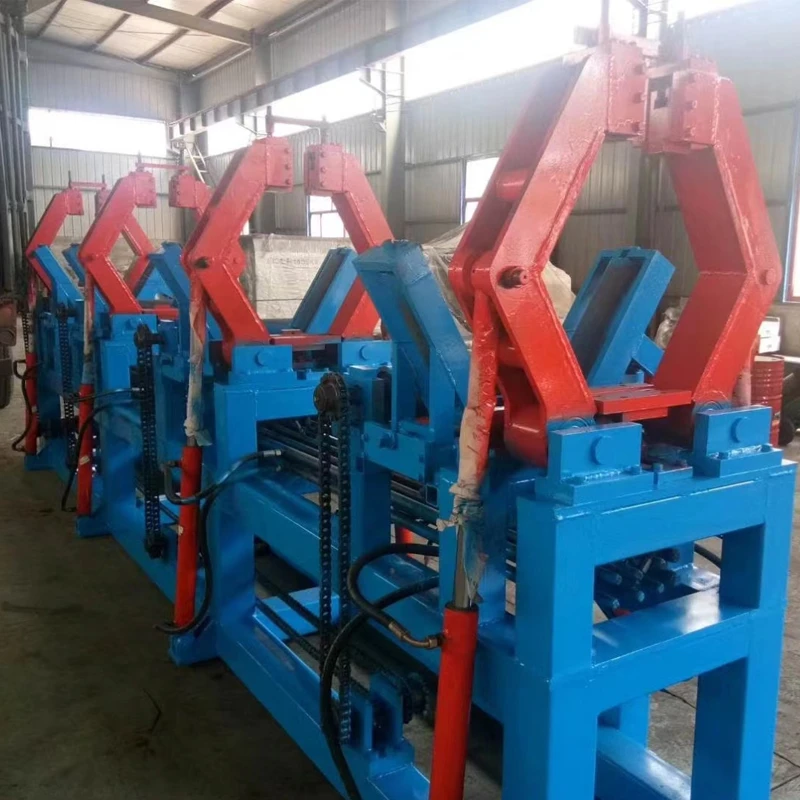shear machine price
Understanding the Price Dynamics of Shear Machines
In today's industrial landscape, shear machines play a pivotal role in various sectors, including metal fabrication, construction, and automotive manufacturing. These machines are designed to cut or shear materials like sheet metal, plastic, and textiles, facilitating precise and efficient operations. With an increase in demand for precision and quality, the price of shear machines can vary significantly, influenced by several factors ranging from technology to market trends. This article aims to explore the different aspects that contribute to the pricing of shear machines and what buyers should consider while making a purchase.
Factors Influencing Shear Machine Prices
1. Type of Shear Machine There are numerous types of shear machines ranging from manual to fully automated systems including guillotine shears, swing beam shears, and hydraulic shears. Each type boasts unique features tailored for specific applications. Generally, hydraulic and automated machines tend to be more expensive due to their advanced technology and capabilities. For instance, a hydraulic shear capable of handling thick materials and offering programmable settings may fetch a higher price than a basic manual shear.
2. Material and Build Quality The materials used in constructing the shear machines significantly influence their durability and efficiency. Machines made from high-quality steel and equipped with robust components tend to last longer and perform better, thus commanding higher prices. Buyers need to assess the build quality as it directly impacts the total cost of ownership, including maintenance and replacement parts.
3. Cutting Capacity and Size Shear machines come in various sizes each offering different cutting capacities. Larger machines designed for heavy-duty operations typically have higher price tags due to their enhanced capabilities and the engineering required to support their size. For instance, a shear machine that can cut through thicker sheets of steel would be priced higher than one designed for lightweight materials.
4. Technological Features Advanced technological features such as digital displays, programmable logic controllers (PLC), and automated feed systems also add to the price. Machines equipped with user-friendly interfaces and automation capabilities can improve workflow efficiency and accuracy, making them desirable despite their higher initial investment.
shear machine price

5. Brand Reputation The manufacturer’s reputation plays a crucial role in pricing. Established brands are likely to charge a premium for their machines due to their proven reliability and after-sale support. Newer or less-known brands may offer competitive prices to attract buyers but may lack the same level of service and warranty options.
6. Market Demand and Economic Factors The pricing of shear machines is also sensitive to market demand and economic conditions. During times of high demand, prices may rise due to limited supply. Conversely, during economic downturns, manufacturers may reduce prices to stimulate sales. Buyers must stay informed about market trends to make savvy purchasing decisions.
Making the Right Purchase Decision
When considering the purchase of a shear machine, buyers should carry out thorough research. Understanding your operational requirements is crucial. Define the type of materials you will be working with, your production volume, and the desired level of automation. It is also beneficial to seek advice from industry experts or peers.
Moreover, comparing multiple suppliers and considering the total cost of ownership is essential; this includes not just the purchase price but also maintenance costs, energy consumption, and potential downtime.
In conclusion, while the initial price of shear machines can vary significantly based on numerous factors, making an informed decision will ultimately lead to a better investment. The capabilities, durability, and efficiency they bring to the table can enhance productivity in any facility, justifying the expense. Understanding these price dynamics will empower buyers to choose a shear machine that perfectly fits their operational needs and budget, ensuring long-term satisfaction and success in their respective industries.
-
High Frequency Straight Seam Welded Pipe Production Line-BzZhou Xinghua Machinery Equipment Manufacturing Co., LTD.|Precision Welding, High EfficiencyNewsJul.30,2025
-
High Frequency Straight Seam Welded Pipe Production Line|BzZhou Xinghua|Precision Welding&EfficiencyNewsJul.30,2025
-
High Frequency Straight Seam Welded Pipe Production Line - BzZhou Xinghua|Precision Engineering&EfficiencyNewsJul.30,2025
-
High-Frequency Straight Seam Welded Pipe Production Line-BzZhou Xinghua Machinery Equipment Manufacturing Co., LTD.NewsJul.30,2025
-
High-Frequency Straight Seam Welded Pipe Production Line-BzZhou Xinghua Machinery Equipment Manufacturing Co., LTD.|Precision Manufacturing, High EfficiencyNewsJul.30,2025
-
High Frequency Straight Seam Welded Pipe Production Line-BzZhou Xinghua Machinery Equipment Manufacturing Co., LTD.|Precision Steel Pipe Manufacturing&Industrial EfficiencyNewsJul.29,2025


